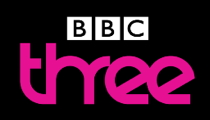This website uses cookies so that we can provide you with the best user experience possible. Cookie information is stored in your browser and performs functions such as recognising you when you return to our website and helping our team to understand which sections of the website you find most interesting and useful.
Business News Media
BBC Three to be made online only
By Chris Cooke | Published on Thursday 6 March 2014
The BBC has announced plans to end over-the-air broadcasts of its youth channel BBC Three, taking the brand exclusively online, where shows will continue to be available on-demand. Though, given the plan is motivated by the need to save another £100 million a year at the Beeb, presumably the number of new shows will be cut (indeed the plan is to shave £65 million off expenditure).
Since the BBC’s last funding deal with the government, which fixed the annual licence fee thus forcing yearly budget cuts as inflation increases costs, management at the Corporation have instigated a plethora of cost savings across the board. Though critics say that the problem with the BBC is that it simply operates too many radio and TV channels, as a result of rapid expansion in the early days of digital and online media, and that to bring its costs under control it needs to shut down some of its operations completely.
The problem for BBC management though is that whenever it does propose such a radical cutback, a mob of supporters for the station or channel under threat suddenly appears declaring “but this is exactly the kind of service the BBC was set up to provide”, and once enough celebs, journalists and politicians are on board Corporation chiefs are forced to backtrack. We know all this because we were part of the mob that shouted very loudly about previous plans to shut down 6 Music.
In its early days, the now eleven years old BBC Three was probably an easy target for the chop, it having more misses than hits in original programming, and most of its schedule seeming to be filled with ‘Eastenders’ repeats, five middling movies on rotation and never-ending episodes of shit sitcom ‘Two Pints Of Lager’. But in the more recent years the network has really found its feet, commissioning plenty of great programmes across various genres, much of it distinct from the ‘yoof content’ pumped out by the commercial sector. And in comedy especially it’s become an important launchpad for new talent.
Though the channel’s supporters worry that key players in Westminster, Fleet Street and Broadcasting House (most of whom are well out of BBC Three’s target demographic) have no direct connection with the network, and tend to mainly hone in on the titles of the channel’s populist documentaries when assessing its performance. Which possibly means Three is still the easiest service for BBC chiefs to sideline.
Of course, given its demographic, there is actually a logic to making BBC Three primarily an online service, perhaps with a twice weekly branded slot on BBC2 for the first airing of new shows to ensure some presence on the traditional broadcast networks.
After all – especially once smart TVs become the norm – on-demand programming accessible over multiple devices will become an important part of the broadcast media environment, and if the Beeb was going to pick any service to experiment with all that, BBC Three is the obvious contender. Though any positives in the move will likely be overshadowed by the fact the shift is ultimately about saving a lot of money.
But assuming the Beeb does start to shift more of its youth programming online (the plan still needs BBC Trust approval), you start to wonder whether it makes sense having its two services that target that demographic, BBC Three and Radio 1, operating separately. And while there has been some joined-up thinking on youth programming before between different branches of the BBC, a full merger of one of the Corporation’s TV channels with one of its radio stations, now that would be interesting to see.






